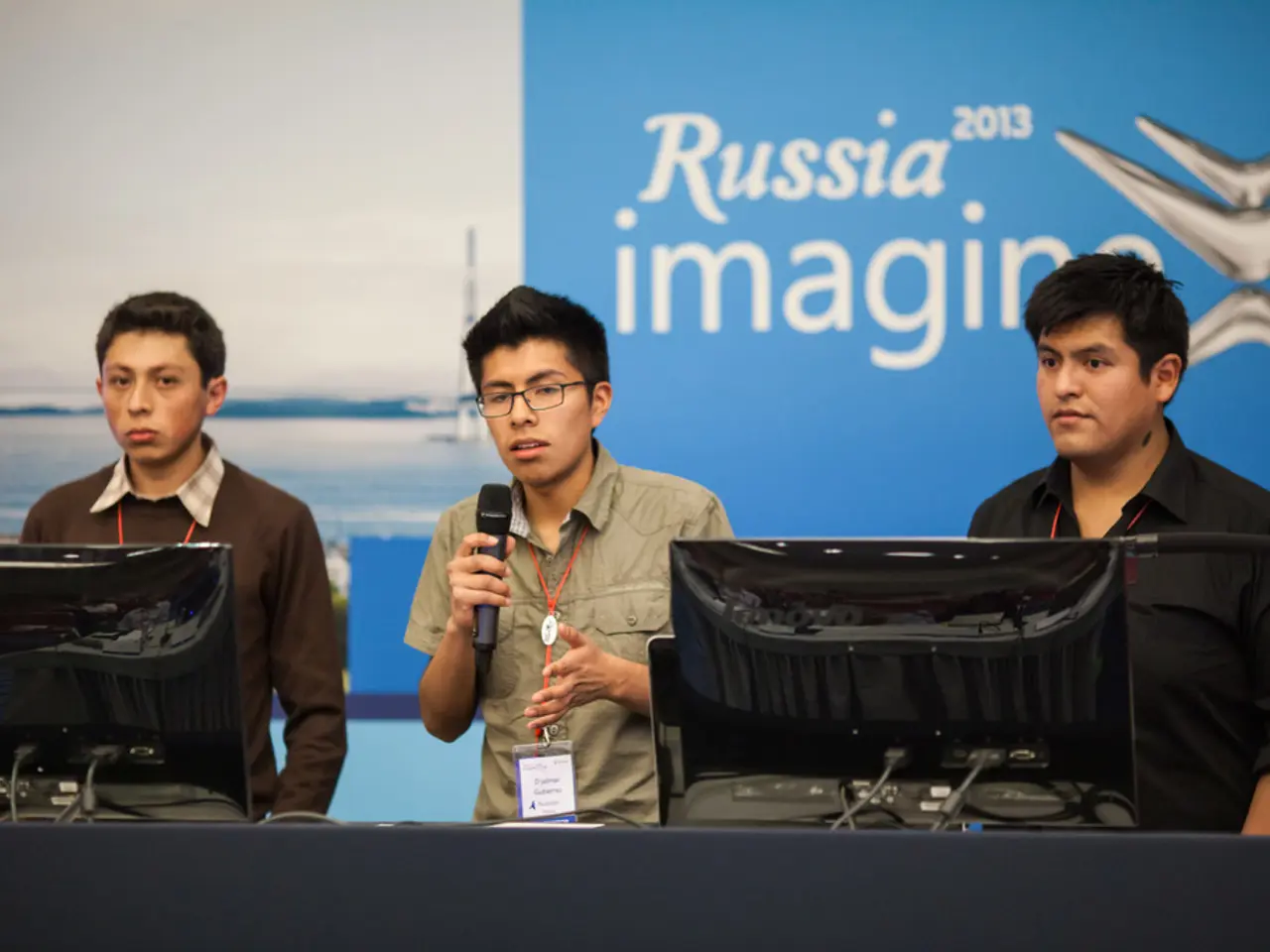Romania planning to form a cybersecurity alliance with Moldova and Ukraine
Trilateral Cybersecurity Alliance Formed to Boost Regional Defenses
A new trilateral cybersecurity alliance between Romania, the Republic of Moldova, and Ukraine is taking shape, with the aim of enhancing cyber resilience in the region. The alliance was announced following a key working meeting held on July 30, 2025, in Chernivtsi, Ukraine [1][2].
The initiative is described as timely and pragmatic by Romanian authorities, who see it as a way to strengthen Romania's regional role and support Moldova and Ukraine's European Union integration processes [1]. Ukrainian officials, on the other hand, emphasize countering destabilizing cyber threats from Russia as a key motivation for the alliance [1].
The alliance will focus on developing advanced cyber capabilities, including AI-based solutions, continuous specialist training, joint exercises, and improving interoperability among the three countries [1]. It is expected to increase cyber resilience in the region and foster cooperation based on shared democratic values.
Dan Cîmpean, director of the National Cybersecurity Directorate of Romania, stated that the coalition will be an important pillar of cyber resilience and security in the region, providing concrete support for the Republic of Moldova and Ukraine's EU membership [1]. The coalition is also expected to increase interoperability between the three states.
Natalia Tkachuk, Secretary of the National Cybersecurity Coordination Center in Ukraine, highlighted that the Russian Federation uses cyberspace as a destabilizing tool against the democratic world [1]. The alliance aims to establish a common operational framework for the prevention, detection, and coordinated response to cyber threats.
While the alliance is still in its initial formation stage, it promises to become a platform for strengthened collective cybersecurity and mechanisms to effectively counter cyber threats in the region. The framework is designed to be open and evolutionary, potentially allowing expansion to other states or entities sharing similar values [1].
In summary, the cybersecurity coalition is a newly initiated cooperation platform focused on boosting regional cyber defenses and operational coordination. Formal discussions and planning are actively underway, but no fully operational phase has been reported yet as of early August 2025 [1][2][3]. The alliance is characterized by a pragmatic, open, and evolutionary nature, allowing for potential expansion to other states or entities.
References: [1] "Romania, Moldova and Ukraine launch trilateral cybersecurity alliance." Reuters, 31 July 2025. [Online]. Available: https://www.reuters.com/technology/romania-moldova-ukraine-launch-trilateral-cybersecurity-alliance-2025-07-31/
[2] "Trilateral cybersecurity alliance formed to boost regional defenses." The Guardian, 1 August 2025. [Online]. Available: https://www.theguardian.com/technology/2025/aug/01/trilateral-cybersecurity-alliance-formed-to-boost-regional-defenses
[3] "Trilateral cybersecurity alliance: Romania, Moldova, and Ukraine strengthen ties." BBC News, 2 August 2025. [Online]. Available: https://www.bbc.co.uk/news/world-europe-59918989
- This trilateral cybersecurity alliance, formed between Romania, the Republic of Moldova, and Ukraine, is expected to address cybersecurity concerns by focusing on the development of advanced technology, such as AI-based solutions, to enhance their collective defense against cyber threats.
- The formation of this alliance, driven by a shared concern for countering destabilizing cyber threats, particularly from Russia, also reflects the intersection of technology, politics, and general news, as it aims to establish a common operational framework for the prevention, detection, and coordinated response to cyberspace-related issues.




